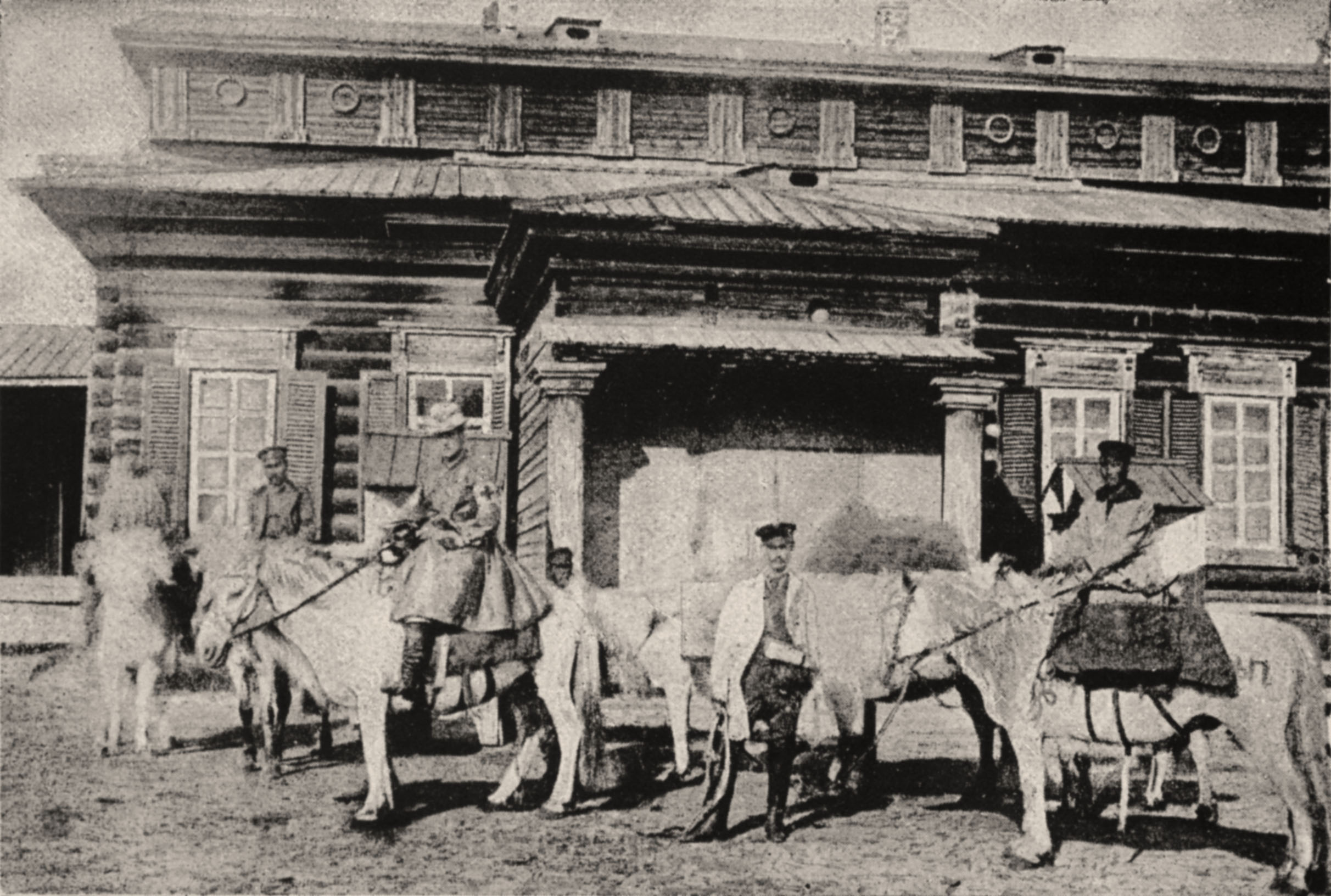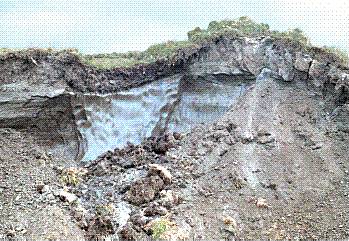|
Melnikov Permafrost Institute
Melnikov Permafrost Institute of the Siberian Branch of the Russian Academy of Science (russian: Институт мерзлотоведения имени П. И. Мельникова СО РАН) is a research institute based in Yakutsk, Russia, a city built on continuous permafrost. It was founded in 1960. In 2020, with global heating Global means of or referring to a globe and may also refer to: Entertainment * ''Global'' (Paul van Dyk album), 2003 * ''Global'' (Bunji Garlin album), 2007 * ''Global'' (Humanoid album), 1989 * ''Global'' (Todd Rundgren album), 2015 * Bruno ... thawing the ground, the Institute is measuring the rate at which the permafrost is thawing, which affects the city as well as the climate. Inventions Method for Determining Air Content in Frozen Soil, Method and Apparatus for Determining Volume and Density of Soil Particles, Apparatus for Heat Exchange of Liquids and Gases, Method for Determining Frost Heave during Active Layer Freezeback, Pile fo ... [...More Info...] [...Related Items...] OR: [Wikipedia] [Google] [Baidu] |
Yakutsk
Yakutsk (russian: Якутск, p=jɪˈkutsk; sah, Дьокуускай, translit=Djokuuskay, ) is the capital city of the Sakha Republic, Russia, located about south of the Arctic Circle. Fueled by the mining industry, Yakutsk has become one of Russia's most rapidly growing regional cities, with a population of 355,443 at the 2021 Census. Yakutsk — where the average annual temperature is , winter high temperatures are consistently well below , and the record low is ,Погода в Якутске. Температура воздуха и осадки. Июль 2001 г. (in Russian) — is the coldest city in the world. Yakutsk is also the largest city located in |
Russia
Russia (, , ), or the Russian Federation, is a List of transcontinental countries, transcontinental country spanning Eastern Europe and North Asia, Northern Asia. It is the List of countries and dependencies by area, largest country in the world, with its internationally recognised territory covering , and encompassing one-eighth of Earth's inhabitable landmass. Russia extends across Time in Russia, eleven time zones and shares Borders of Russia, land boundaries with fourteen countries, more than List of countries and territories by land borders, any other country but China. It is the List of countries and dependencies by population, world's ninth-most populous country and List of European countries by population, Europe's most populous country, with a population of 146 million people. The country's capital and List of cities and towns in Russia by population, largest city is Moscow, the List of European cities by population within city limits, largest city entirely within E ... [...More Info...] [...Related Items...] OR: [Wikipedia] [Google] [Baidu] |
Siberian Branch Of The Russian Academy Of Sciences
The Siberian Branch of the Russian Academy of Sciences (SBRAS) was established by the Decree of the Government of the USSR which was based on the proposal of Mikhail Lavrentyev, Sergei Sobolev and Sergey Khristianovich in 1957 as a regional division of the Academy of Sciences of the USSR, replacing a previous small branch of the Academy of Sciences of the USSR. Novosibirsk State University was founded to serve as a staff base for the Siberian Branch. Lavrentyev was also the founding chairman of the branch. Publications The Siberian branch publishes two journals — '' Archaeology, Ethnology & Anthropology of Eurasia'' and ''Geography and Natural Resource'' — in association with Elsevier Elsevier () is a Dutch academic publishing company specializing in scientific, technical, and medical content. Its products include journals such as ''The Lancet'', ''Cell'', the ScienceDirect collection of electronic journals, '' Trends'', th .... References 1957 establishments in ... [...More Info...] [...Related Items...] OR: [Wikipedia] [Google] [Baidu] |
Continuous Permafrost
Permafrost is ground that continuously remains below 0 °C (32 °F) for two or more years, located on land or under the ocean. Most common in the Northern Hemisphere, around 15% of the Northern Hemisphere or 11% of the global surface is underlain by permafrost, with the total area of around 18 million km2. This includes substantial areas of Alaska, Greenland, Canada and Siberia. It can also be located on mountaintops in the Southern Hemisphere and beneath ice-free areas in the Antarctic. Permafrost does not have to be the first layer that is on the ground. It can be from an inch to several miles deep under the Earth's surface. It frequently occurs in ground ice, but it can also be present in non-porous bedrock. Permafrost is formed from ice holding various types of soil, sand, and rock in combination. Permafrost contains large amounts of biomass and decomposed biomass that has been stored as methane and carbon dioxide, making tundra soil a carbon sink. As global war ... [...More Info...] [...Related Items...] OR: [Wikipedia] [Google] [Baidu] |
Global Heating
Global means of or referring to a globe and may also refer to: Entertainment * ''Global'' (Paul van Dyk album), 2003 * ''Global'' (Bunji Garlin album), 2007 * ''Global'' (Humanoid album), 1989 * ''Global'' (Todd Rundgren album), 2015 * Bruno J. Global, a character in the anime series ''The Super Dimension Fortress Macross'' Companies and brands Television * Global Television Network, in Canada ** Global BC, on-air brand of CHAN-TV, a television station in Vancouver, British Columbia, Canada ** Global Okanagan, on-air brand of CHBC-TV, a television station in Kelowna, British Columbia, Canada ** Global Toronto, a television station in Toronto ** Global Edmonton ** Global Calgary ** Global Montreal ** Global Maritimes ** Canwest Global, former parent company of Global Television Network * Global TV (Venezuela), a regional channel in Venezuela Other industries * Global (cutlery), a Japanese brand * Global Aviation Holdings, the parent company of World Airways, Inc., and North Am ... [...More Info...] [...Related Items...] OR: [Wikipedia] [Google] [Baidu] |
Institutes Of The Russian Academy Of Sciences
An institute is an organisational body created for a certain purpose. They are often research organisations (research institutes) created to do research on specific topics, or can also be a professional body. In some countries, institutes can be part of a university or other institutions of higher education, either as a group of departments or an autonomous educational institution without a traditional university status such as a "university institute" (see Institute of Technology). In some countries, such as South Korea and India, private schools are sometimes referred to as institutes, and in Spain, secondary schools are referred to as institutes. Historically, in some countries institutes were educational units imparting vocational training and often incorporating libraries, also known as mechanics' institutes. The word "institute" comes from a Latin word ''institutum'' meaning "facility" or "habit"; from ''instituere'' meaning "build", "create", "raise" or "educate". ... [...More Info...] [...Related Items...] OR: [Wikipedia] [Google] [Baidu] |
Research Institutes Established In 1960
Research is " creative and systematic work undertaken to increase the stock of knowledge". It involves the collection, organization and analysis of evidence to increase understanding of a topic, characterized by a particular attentiveness to controlling sources of bias and error. These activities are characterized by accounting and controlling for biases. A research project may be an expansion on past work in the field. To test the validity of instruments, procedures, or experiments, research may replicate elements of prior projects or the project as a whole. The primary purposes of basic research (as opposed to applied research) are documentation, discovery, interpretation, and the research and development (R&D) of methods and systems for the advancement of human knowledge. Approaches to research depend on epistemologies, which vary considerably both within and between humanities and sciences. There are several forms of research: scientific, humanities, artistic, econom ... [...More Info...] [...Related Items...] OR: [Wikipedia] [Google] [Baidu] |
Research Institutes In The Soviet Union
Research is "creative and systematic work undertaken to increase the stock of knowledge". It involves the collection, organization and analysis of evidence to increase understanding of a topic, characterized by a particular attentiveness to controlling sources of bias and error. These activities are characterized by accounting and controlling for biases. A research project may be an expansion on past work in the field. To test the validity of instruments, procedures, or experiments, research may replicate elements of prior projects or the project as a whole. The primary purposes of basic research (as opposed to applied research) are documentation, discovery, interpretation, and the research and development (R&D) of methods and systems for the advancement of human knowledge. Approaches to research depend on epistemologies, which vary considerably both within and between humanities and sciences. There are several forms of research: scientific, humanities, artistic, economi ... [...More Info...] [...Related Items...] OR: [Wikipedia] [Google] [Baidu] |
Science And Technology In Siberia
Science is a systematic endeavor that builds and organizes knowledge in the form of testable explanations and predictions about the universe. Science may be as old as the human species, and some of the earliest archeological evidence for scientific reasoning is tens of thousands of years old. The earliest written records in the history of science come from Ancient Egypt and Mesopotamia in around 3000 to 1200 BCE. Their contributions to mathematics, astronomy, and medicine entered and shaped Greek natural philosophy of classical antiquity, whereby formal attempts were made to provide explanations of events in the physical world based on natural causes. After the fall of the Western Roman Empire, knowledge of Greek conceptions of the world deteriorated in Western Europe during the early centuries (400 to 1000 CE) of the Middle Ages, but was preserved in the Muslim world during the Islamic Golden Age and later by the efforts of Byzantine Greek scholars who brought Greek m ... [...More Info...] [...Related Items...] OR: [Wikipedia] [Google] [Baidu] |
Permafrost
Permafrost is ground that continuously remains below 0 °C (32 °F) for two or more years, located on land or under the ocean. Most common in the Northern Hemisphere, around 15% of the Northern Hemisphere or 11% of the global surface is underlain by permafrost, with the total area of around 18 million km2. This includes substantial areas of Alaska, Greenland, Canada and Siberia. It can also be located on mountaintops in the Southern Hemisphere and beneath ice-free areas in the Antarctic. Permafrost does not have to be the first layer that is on the ground. It can be from an inch to several miles deep under the Earth's surface. It frequently occurs in ground ice, but it can also be present in non-porous bedrock. Permafrost is formed from ice holding various types of soil, sand, and rock in combination. Permafrost contains large amounts of biomass and decomposed biomass that has been stored as methane and carbon dioxide, making tundra soil a carbon sink. As global war ... [...More Info...] [...Related Items...] OR: [Wikipedia] [Google] [Baidu] |






